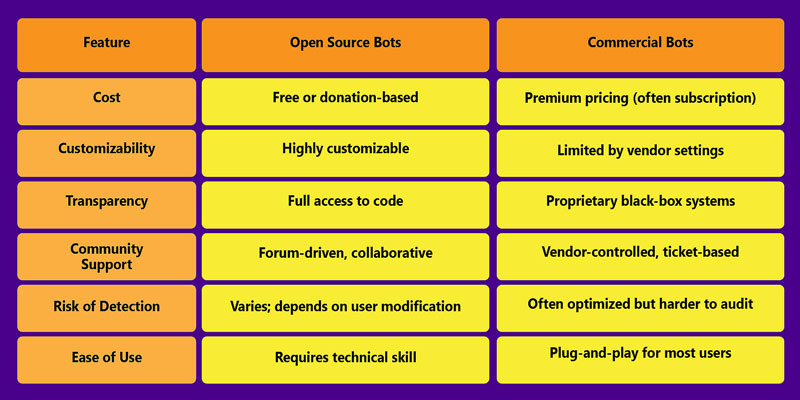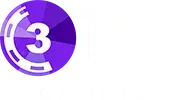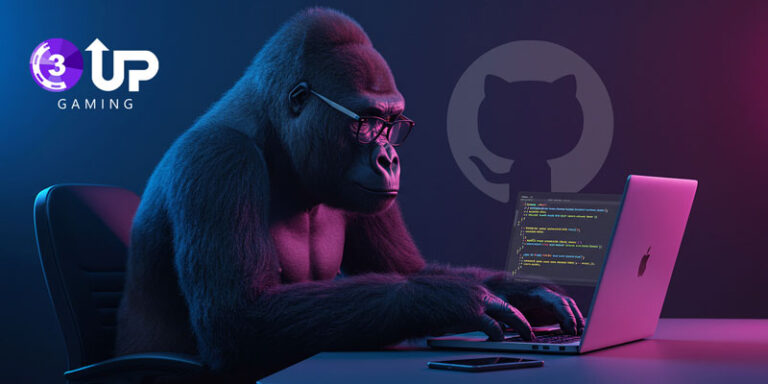Open Source Poker Robot: Free, Flexible & Customizable AI Bots! Open source poker bots have completely revolutionized the game of poker among amateurs and professionals alike. Unlike proprietary business software, the bots offer open codebases, which can be reviewed, modified, or revised by anyone.
As poker strategy has become more data-driven, the demand for tunable and adaptive AI has grown, and open source solutions have emerged as a viable alternative to expensive software packages. These bots are not just experimental; some of them, when tuned correctly, can hold their own against commercial offerings.
If you want to model situations, hone GTO-based thinking, or experiment with bluffing models, open source software is a great place to start. Freedom is their greatest selling point: from code to launch, users call every level.
We explore the most powerful tools, legality required, and becoming a part of the global community sharpening them every day in this article.
Open Source Poker Robot
Looking for a powerful poker AI without the limitations of closed software? An open source poker robot offers a free, flexible, and fully customizable solution for developers and enthusiasts alike. With access to source code, you can modify gameplay strategies, integrate advanced algorithms, or tailor the bot to specific poker variants like Texas Hold’em or Omaha.
Whether you’re building a training tool, testing scenarios, or exploring game theory, open source poker bots give you full control and transparency. Ideal for both research and personal projects, they represent the cutting edge of poker AI development.
Advantages of Using Open Source Solutions
Open source poker bots can’t be beaten for transparency and control. End users of full source code can review the decision-making process behind every move and decide if it’s transparent and fair. Unlike proprietary software paywalled or secret algorithms, open source solutions promote exploration and innovation.
It allows developers to insert new tactics, tweak parameters for a particular type of games, or even improve bot performance to play more than one table. The second important advantage is community support: worldwide developers are more likely to give patches, bug fixes, and new features.
Open platforms are students’ and researchers’ weapons to learn from, demonstrating the capability of GTO solvers, reinforcement learning, and decision trees for practical purposes. Above all, naturally, it is such bots that are usually free, so it is that much easier for enterprising programmers to get their hands wet.
Most Popular Open Source Poker Bot Projects

Some of the open source poker bot projects have attained a high degree of worldwide recognition due to being extensible, usable, and well-maintained communities. The uses range from small-scale usage to advanced AI uses that simulate good play.
- OpenHoldem: One of the highly active, highly mature open source poker bot projects, OpenHoldem has HUD support, auto-play, and plugin architecture. It is largely used for learning and personal testing.
- PioBot (community fork): From the solutions of PioSOLVER, this community project aims to bridge the gap between GTO solutions and playing decisions in real games in real-time. While not supported officially, it has garnered interest from people who have an interest in equilibrium play.
- PokerStove: Originally designed for equity calculation, demand for use as an open-source bot probability engine remains high.
- GTORB: GTORB means game-theoretic research tool and is built for researchers to explore equilibrium computation in simplified poker models.
- Deuces: A Python poker hand evaluator and utility, typically used to develop bespoke bots or incorporate into ML pipelines.
Not only is this kind of project an excellent initiation point, but also a testament to how open development fosters innovation within the whole poker AI ecosystem.
Understanding the Architecture and Codebase
Open source poker bots are often extremely modular with effective compartmentalization between modules for game logic, decisions, and user interfaces. They typically share a consistent architecture of three layers:
- Input Capture: The bot is presented with hand histories or screen-scraped input (OCR) in order to learn the current state of the game.
- Decision Engine: Machine learning models, rule-based heuristics, or GTO solvers are the brains of the decision engine that are fed the state and decide action.
- Execution Module: Action (bet, raise, fold) decided is implemented using mouse simulation or API calls.
Codebases vary in language. From Python (e.g., Deuces), C++ (e.g., OpenHoldem), or JavaScript (web-based bots), each is distinguished. Clean architecture renders it flexible, with developers being able to replace solvers or introduce custom strategies. Commented code and modular structure allow even inexperienced users to look into the system.
Understanding of this design allows for easier debugging, faster customization, and safer bot deployment in controlled environments.
Preparing Open Source Bots for Strategy
Open source poker bot development allows developers and players to implement game-type, player pool-type, or risk tolerance-type strategies. By having access to the entire code, it is possible to change:
- Preflop ranges: Determine which hands to open, call, or fold in each position.
- Postflop thinking: Modify continuation bet sizing, bluffing frequency, and value cutting.
- Opponent profiling: Include modules that are adaptive by player type (tight, loose, aggressive, passive).
- Table dynamics: Add adjustments for stack sizes, tournament stage, or multi-table situations.
Power users would prefer to be able to plug in GTO solvers or neural networks in order to enhance decision-making. Even less techie users are able to change rule-based systems through config files or GUIs. Most applications have scriptable logic or plugin frameworks, so changing strategy can be done without having to rebuild the bot.
Whether your goal is GTO play or exploitative targeting, open source bots provide the freedom to craft a style that is your own, or one that’s all but unreadable.
Open Source Bots and Community Participation

Open source poker bots are found in vibrant communities. Bug fixes, new features, and strategy modules are exchanged by software developers worldwide on GitHub-type platforms. Version updates, debugging, and tips for game use are received through Discord servers and forums.
Well-known projects such as OpenHoldem or Deuces are continually open to pull requests for GUI enhancements, solver updates, or evasion tweak adjustments. This philosophy shared among these communities generates instant innovation and massive testing in most play environments.
For new players, membership within these communities can significantly lower the learning curve as well as a place to share ideas or request something.
Security in Public Code and Path by Which It Enters Users’ Systems
Open-source poker bots are truthful but dangerous. Public, not entirely audited code can have embedded exploits, backdoors or viruses contained. Audit code always or from trusted repositories that are live maintained.
Bots working with real money sites are more dangerous: memory scraping, injection, or API tampering can lead to platform bans or worse, legal action. Never run foreign scripts and test on virtual machines or sandboxed environments.
Defense is not security; responsibility comes with the package of working with bleeding-edge technology.
Licensing and Legal Implications
The data of most open source poker bots are released under differing licenses such as MIT, GPL, or Apache, each containing its own set of rules to use, redistribute, and change. Make sure to comply with them, especially when redistributing or reusing changed code.
Real-money web gambling is normally illegal. There will be suspension or prosecution whether the code is licensed or not. Read the terms of the website before running any bots.
Open source is not desirable as it also carries moral and legal restrictions.
Read More: Custom Poker Bot Development: Build Smarter, Undetectable AI Players!
Getting Started with GitHub Projects
It is simple to start with open-source pokerbots on GitHub in five steps:
- Get a stable repo: Like OpenHoldem, PokerBotPy, or Deuces.
- Generally has setup, dependencies, and an example use.
- Clone or fork the repository: Place the project on your machine with Git
- Installation requirements: They are usually either C++ or Python, usually some library.
- Simulation testing:Testing prior to market on sandbox environment
When collaborating with witnesses, use Issues and Discussions to request assistance or propose suggestions.
Open Source vs. Commercial Bots: Trends

Though they demand technical proficiency and in certain cases are more difficult to employ, but open source bots provide freedom and flexibility. Transparency here is being traded off for ease and assistance in making business decisions, which may convert technical competence to exploitation in the game.
Conclusion: Is Open Source the Future?
Open source poker robots transform the game by providing developers, researchers, and hobbyists access to cheap, multi-tooling. Though commercial bots aim at usability, open source efforts provide more integrated learning, sheer transparency, and ultimate flexibility. Online communities continually contribute their energies to such endeavors, making them state-of-the-art in strategy and stealth.
All the same, their fate lies in prudent use. Ethical use, respect for web policy, and good innovation will determine whether open source robots become an evil or good force in online poker societies.
With AI advancing technology, open-source design can produce the most realistic, strategic, and sneaky bots, catapulting the open source movement from niche to new normal.
FAQs: Open Source Poker Robot
- Are open source poker bots legal to use? Legality is established by the site. Bots are prohibited by most online poker sites; their regulations could be violated, and they could be banned.
- What skills do I need to work with open source poker bots? You need to be skilled in basic coding concepts (Python, C++), know Git/GitHub, and be aware of poker mechanics.
- Can I use open source bots to play for real money? Yes, technically but perilously so. Successful detection programs and a multitude of site rule violations occur when money play is done with robots.
- Is open source better than paid poker bots? Stealth and simplicity are what open source bots appreciate, whereas open source bots emphasize flexibility and learning. It is dependent on what it is that you want, yes.
- How do I contribute to an open source poker bot project? Look at the repository, make changes to it, open a pull request on GitHub. Participate in discussions with the public as well.



